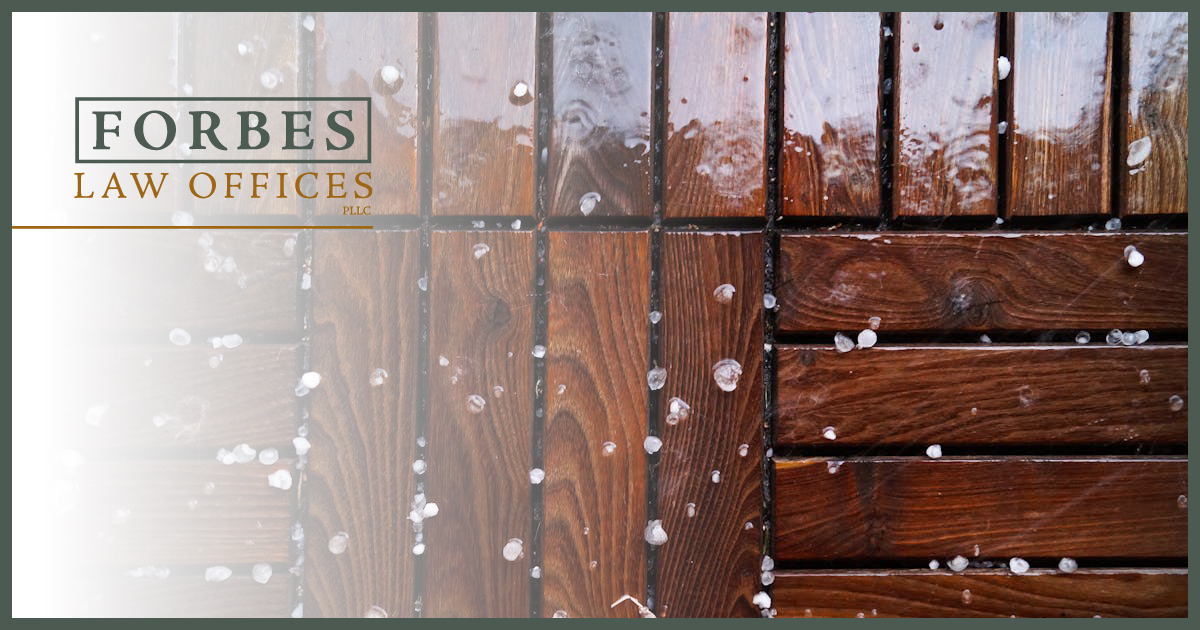Slip and fall accidents can happen anywhere, from grocery stores to office buildings, and they often leave victims shaken and uncertain about what steps to take next. Whether you slipped on a wet floor or tripped over an uneven surface, knowing what to do in the aftermath is crucial for your health, safety, and legal protection.
In this post, we’ll walk you through the essential steps to take after a slip and fall accident to ensure you’re properly cared for and prepared for any legal proceedings that may follow.
Assess Your Immediate Condition
Immediately after a slip and fall accident, it’s essential to assess your physical condition.
Check yourself for any injuries, no matter how minor they may seem at first. If you’re seriously hurt or experiencing severe pain, seek medical attention right away.
Common injuries from a slip and fall incident often include:
- Soft Tissue Injuries: These include bruises, sprains, strains, and muscle tears. Soft tissue injuries can occur when the body impacts the ground or other surfaces abruptly.
- Fractures: Falls can cause fractures or breaks in bones, particularly in the wrists, arms, hips, and ankles. Fractures may range from hairline cracks to complete breaks and may require medical intervention such as casting or surgery.
- Head Injuries: According to the National Institute of Neurological Disorders and Stroke, head injuries, including concussions and traumatic brain injuries (TBIs), can occur if the head strikes the ground or another object during a fall. Even seemingly minor head injuries can have serious consequences and require immediate medical attention. According to the Centers for Disease Control and Prevention (CDC), falls are one of the leading causes of TBI, especially among older adults and young children.
- Spinal Cord Injuries: Falls can cause damage to the spinal cord, resulting in temporary or permanent paralysis, loss of sensation, or impaired bodily functions. Spinal cord injuries require prompt medical treatment and rehabilitation.
- Cuts and Lacerations: Broken glass, sharp edges, or other objects on the ground can cause cuts and lacerations during a fall. These injuries may range from minor abrasions to deep wounds requiring stitches or sutures.
- Dislocations: The impact of a fall can force joints out of their normal positions, leading to dislocations. Common dislocated joints include shoulders, elbows, knees, and hips. Prompt medical attention is necessary to relocate the joint and prevent further damage.
- Internal Injuries: Falls can cause internal injuries such as organ damage, internal bleeding, or abdominal injuries. Internal injuries may not be immediately apparent and require medical evaluation to diagnose and treat effectively.
- Emotional Trauma: In addition to physical injuries, slip and fall accidents can also result in emotional trauma (pain and suffering), including anxiety, post-traumatic stress disorder (PTSD), and depression. The psychological impact of an accident should not be overlooked, and individuals may benefit from counseling or therapy.
Even if you don’t think you’re injured, it’s still advisable to see a healthcare professional, as some injuries, such as internal trauma or concussions, may not be immediately apparent.
Document the Scene
Once you’ve addressed any immediate medical concerns, take the time to document the scene of the accident. If possible, take photographs or videos of the area where you fell, including any hazards or conditions that contributed to the accident, such as a wet floor or a broken step.
Also, be sure to note the date and time of the incident, as well as any witnesses who may have seen what happened. This documentation can be invaluable if you decide to pursue a legal claim later on.
Report the Accident
Regardless of where the slip and fall occurred, it’s important to report the incident to the property owner or manager as soon as possible.
This not only ensures that the appropriate steps can be taken to prevent future accidents but also creates an official record of the incident. When reporting the accident, be sure to provide details about what happened and any injuries you sustained.
Ask for a copy of the incident report for your records.
Seek Legal Advice
If you’ve been injured in a slip and fall accident, it’s wise to seek legal advice from a qualified injury attorney.
An attorney can help you understand your rights and options for seeking compensation for your injuries, including medical expenses, lost wages, and pain and suffering.
The experienced attorneys at Forbes Law Offices can also advise you on how to navigate the legal process and negotiate with insurance companies or property owners on your behalf.
Preserve Evidence
As you move forward with your claim, it’s essential to preserve any evidence related to the accident.
This includes:
- Medical records
- Photographs of your injuries
- Copies of any correspondence with the property owner or their insurance company
- Receipts for any expenses incurred as a result of the accident
Keeping thorough records will strengthen your case and ensure that you’re fully compensated for your losses.
Follow Your Doctor’s Orders
Throughout the recovery process, be sure to follow your doctor’s orders closely.
Attend all follow-up appointments, undergo any recommended treatments or therapies, and take any prescribed medications as directed. Not only will this help you recover more quickly, but it will also provide further documentation of your injuries and the impact they’ve had on your life.
Consider Settlement Offers Carefully
If the property owner or their insurance company offers you a settlement for your slip and fall injuries, it’s essential to consider the offer carefully before accepting. Always consult with your attorney to ensure that the settlement amount adequately covers your medical expenses, lost wages, and other damages.
Remember – once you accept a settlement, you typically forfeit your right to pursue further legal action, so it’s crucial to make an informed decision.
A slip and fall accident can be a traumatic experience, but knowing what steps to take in the aftermath can help protect your health, safety, and legal rights. By following the advice outlined in this post, you can ensure that you receive the care and compensation you deserve after a slip and fall incident.
Remember to document the scene, report the accident, seek legal advice, preserve evidence, follow your doctor’s orders, and carefully consider any settlement offers before making a decision.
With diligence and determination, you can navigate the aftermath of a slip and fall accident with confidence.
If you’ve been the victim of a slip and fall incident due to the actions or negligence of someone else or have questions about a current claim, reach out to a personal injury attorney. Our lawyers at Forbes Law Offices can help.













